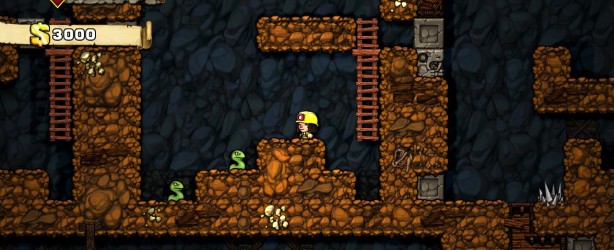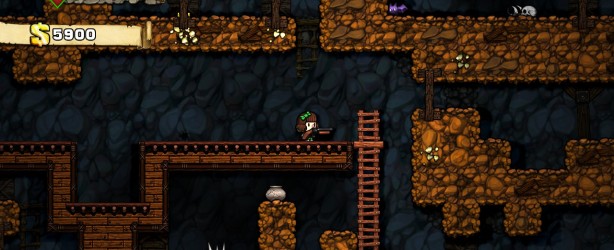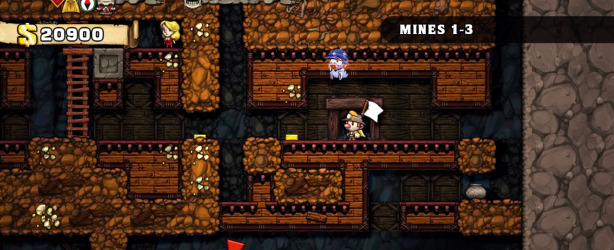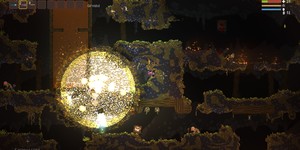
Spelunky Review
Developer: Derek YuPublisher: Mossmouth
UK Price: £11.99
Platform(s): PC, X360, PS3, PSVITA
The first few tries at Spelunky are a fumbling mess of mistakes. You'll die because you'll be placed into situations you haven't been prepped to avoid. That sounds like a criticism, but it’s actually a strangely affirming experience. Each next attempt, step by step, is a process of learning new lessons and implementing solutions to things that have tripped you up before. Spelunky is a game where you either get better at playing or you don’t make any progress, almost as if you grow as a person each time you play.
Spelunky looks as if it's a rote 2D platformer, the kind where you run to the exit and try not to get hit by too many things on the way there. The goals are the same, in a sense, but it differs by offering a uniquely fair sense of crushing difficulty and total randomisation. Spelunky is based on Roguelikes, games that are defined by the permanence of death, where you're sent right back to the start if you get anything wrong and need to do it all over again. Next time the path will change, enemies will be dotted around elsewhere and traps planted in unpredictable locations.
This design choice will likely turn away a lot of people. It's highly probable that you'll never reach the end, but if you feel you've the stubbornness to stick with it, Spelunky feels like a high dose of uncut perfect game design.
Though the game randomises each time, the level structure retains a specific theme and there are constant rules that are always the same. You will always start with four health points and as many bombs and ropes. There's always a clear route to the level exit at the bottom of the map from the top where you start, but you may want to explore the beaten path, climbing over too-high walls or breaking through them. Spelunky is about gathering treasure, some in the form of items that improve your abilities, others in standard gems and gold which can be sold in stores or hoarded for a better score on the end-game leaderboard.
Each game, if you can make it, follows a trek through a few levels in a mine, then an underground jungle, an ice cave and finally a temple where the end boss lives. The difficulty progression is strange, because if you're playing correctly it's front loaded, most of the trouble coming from not having the correct equipment, then gradually getting easier as your character improves with the items they gain and the skills that you learn as a player. The progression feels like a reward for good play rather than a constant stress. It's a struggle that dissipates rather than amplifies.

MSI MPG Velox 100R Chassis Review
October 14 2021 | 15:04












Want to comment? Please log in.